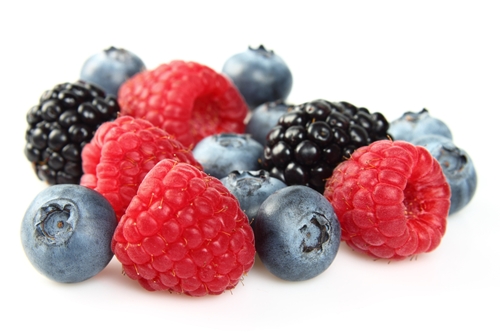Foods that help combat memory loss (2023 for Seniors)

It is well-known that eating a healthy diet and exercising regularly can help maintain a normal body weight and prevent ailments like heart disease, diabetes, high cholesterol and cancer. Foods that help with memory loss are abundant, you just have to know what to eat. But did you know that nutrition can also be a major factor in memory care for seniors? We all know there has to be food that help combat memory loss, right? Like any other organ of the body, the brain functions better when properly fed, and maintaining a healthy lifestyle later in life can help prevent memory loss and support brain power.
According to the Alzheimer’s Association, studies have shown that diets high in fat and cholesterol have been linked to a higher risk for Alzheimer’s disease. Dementia is also associated with higher body weight. Fortunately, replacing certain fats in your diet and eating foods with more nutrients can improve brain health and lower the risk of disease.
Foods that help with memory loss in 2023 (Updated)
Adopting several nutritious foods like whole grains, leafy greens, fruits and good fats into your diet is essential for senior wellness. Avoiding trans fats, reducing salt intake and eating less red meat and dairy products are all healthy ways to adjust your diet to reduce the risk of losing brain function.
“The best menu for boosting memory and brain function encourages good blood flow to the brain — much like what you’d eat to nourish and protect your heart,” said Marisa Moore, a registered nurse and spokesperson for The Academy of Nutrition and Dietetics.
Green vegetables
Eating your vegetables is a message that’s probably been given all your life. But for senior nutrition, foods like kale, brussel sprouts, cabbage, spinach, alfalfa sprouts and broccoli have been shown to boost brain function. Nutrients such as folate, magnesium, fiber, protein and vitamins A, C and K can all be absorbed by eating vegetables.
The AARP recommends seniors reduce their intake of red meats and opt for kidney beans, lentils and split peas for protein instead.
Fruits
With lots of antioxidants, dark-skinned fruits like berries, plums, cherries, raisins and prunes are all super foods to boost memory function, according to The Academy of Nutrition and Dietetics.
Fresh, raw fruit will yield the most nutrients, but using fruits in baking or frozen berries in smoothies are good ways to implement them into your diet, too.The Department of Health recommends between 2 and 4 servings of fruit each day, stating that studies have shown people who consume 2.5 servings have a reduced risk of stroke.
Omega-3 fatty acids
Not all fat is bad for you. In fact, foods that are rich in omega-3 fatty acids, especially docosahexaenoic acid (DHA), are incredibly beneficial for your health. The Alzheimer’s Association suggests that fatty fish like tuna, salmon, trout, mackerel and halibut are good sources for omega-3. Seniors should substitute meat for fish a few times per week and avoid frying in trans fats in order to benefit from the nutrients for memory care.
“DHA is the most abundant fatty acid in the brain,” said Andrea Giancoli, registered dietitian and Academy spokesperson. “It makes sense that if you have higher levels of DHA in the blood, then the brain will operate more efficiently.”
Nuts
If allergies are not a problem, walnuts, almonds and pecans are all recommended foods by the Alzheimer’s Association for not only brain health, but heart health. As part of a balanced diet, nuts may help curb hunger to maintain a normal body weight.
While no food can stop aging or disease completely, there are several benefits from eating a diet rich in brain-boosting nutrients for senior wellness. Most importantly, a healthy diet can improve brain function and keep memory loss at bay.
At My Senior Health Plan, we specialize in providing personalized and trusted Medicare advice to help you navigate the complexities of healthcare coverage. Our team of experts is dedicated to ensuring you understand your options and maximize your benefits. Contact us today for free guidance and let us help you make informed decisions about your Medicare plan.

